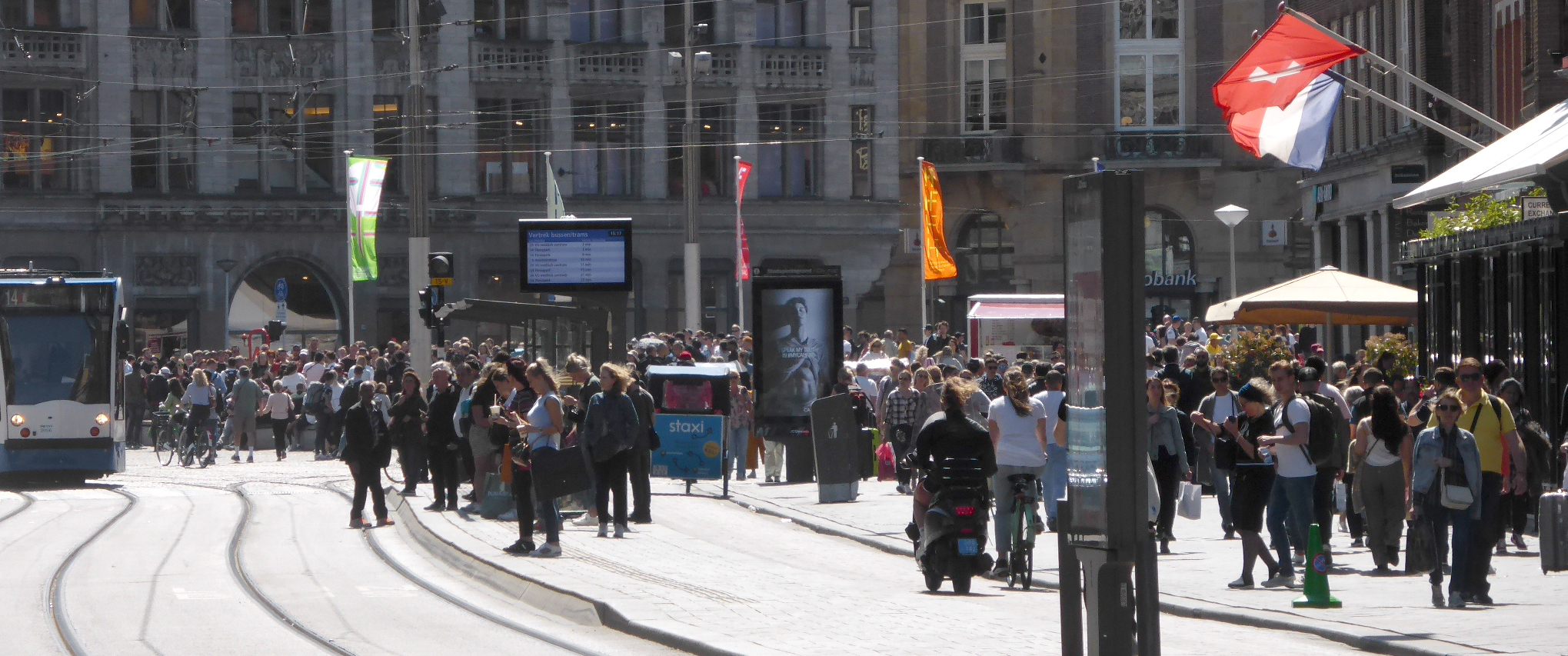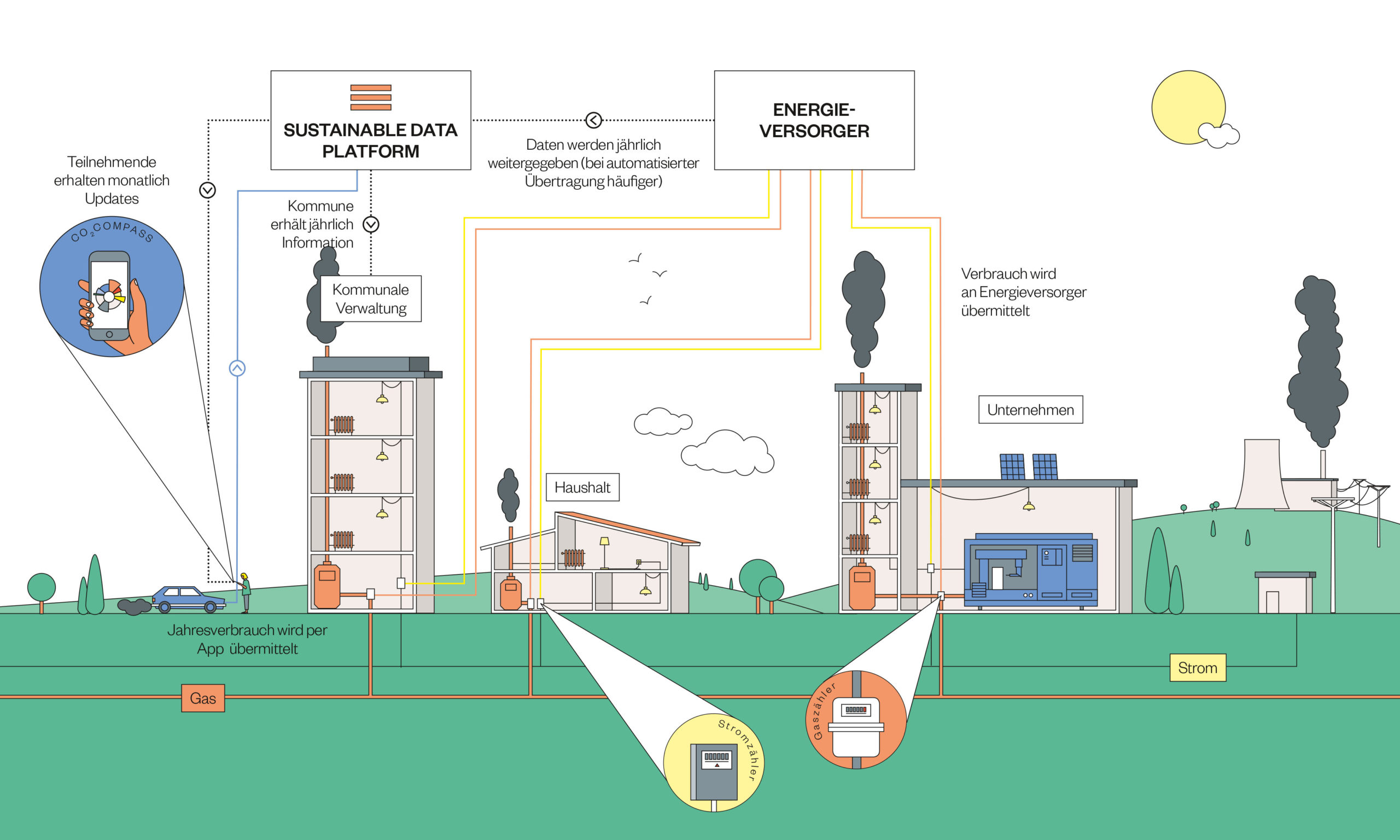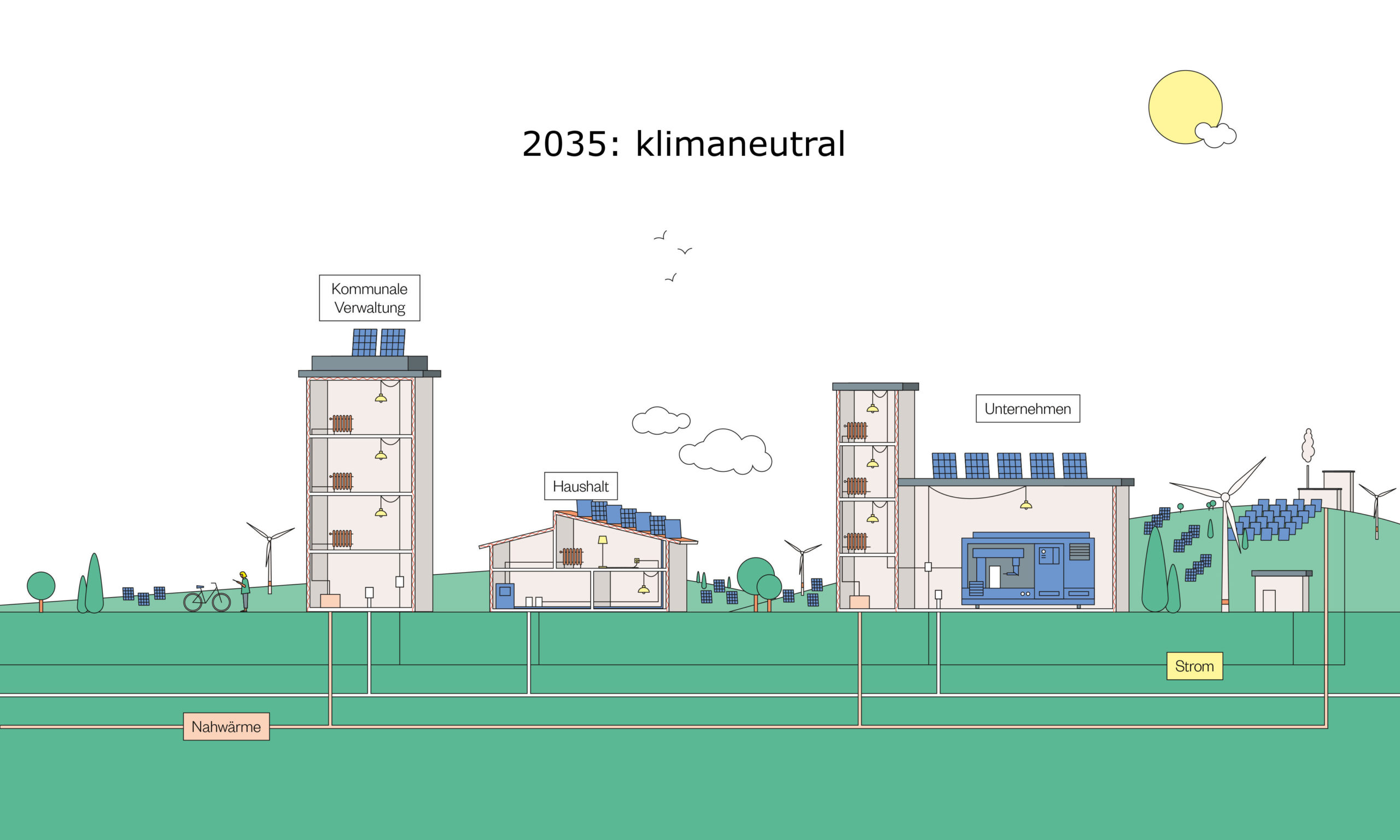Because we have to act now
According to the Paris Agreement CO2-emissions in Europe are to be cut to zero by 2035. However, the necessary measures are not being taken. This is true not only in Germany, but across Europe and the world at large.
At the same time, more and more people are ready for change and demand appropriate policy and structural reform. Municipalities (communities, cities and counties) can provide the necessary space and framework for this transformation. At the communal level, more so than the national level, nonpartisan majorities are possible. Communal bodies can make and implement decisions quicker, and the effects of resolutions are visible quickly.
Citizens, companies and municipalities can seize the challenges of the climate crisis as an opportunity and become agents of change.
A compass that motivates
The CO2COMPASS program provides a monitoring app that enables each participant, whether a household, a company or a municipally-run building or establishment, to track their own emissions. Using the app is voluntary, and data—which users can transfer manually or automatically—is acquired under strict privacy protection.
The app provides users with a quick overview of their own footprint, illustrates effective measures they can take immediately and invites them to exchange information and network with other participants. It displays the progress made by acting in concert.
The CO2COMPASS app raises awareness for the power of each individual's action and encourages participants to take responsibility.
Step by step to zero
Municipalities partaking in the CO2COMPASS program commit to act by transforming their energy supply and mobility systems into climate-neutral ones by 2035, seen by many as the next commonsense step after declaring a climate emergency. This restructuring is accomplished by continually sinking carbon goals, a semi-automated consumption monitoring system, a fair climate contribution and the participation of all community members: citizens, companies and public institutions.
Calculations are initially based on the direct energy consumption of buildings: heat and electricity. Year by year, target emissions for these sectors are reduced, falling to zero in 2035. Citizens and companies who meet or remain below annual targets largely pay no contribution and are rewarded for their achievement. Emissions exceeding the annual target are paid off by a climate contribution determined by the municipality. Contributions flow into an investment fund used specifically for climate-neutral restructuring projects, especially for mobility and heat. One project, for example, could be a municipal heat supply with low CO2-emissions, such as a local heating network for a combined solar and bioenergy heat and power plant. The fund may also be used to finance CO2 capture and store measures, such as municipal reforestation projects. Decisions concerning the application of funds are met collectively with citizens and are based on professional climate protection concepts. The implementation and success of all measures are reviewed closely. Transforming to CO2-free adds sustainable appeal to communities.
The fund may also be used to finance CO2 capture and store measures, such as municipal reforestation projects. Decisions concerning the application of funds are met collectively with citizens and are based on professional climate protection concepts. The implementation and success of all measures are reviewed closely. Transforming to CO2-free adds sustainable appeal to communities.
Economical and efficient
Based on data and experience acquired across many municipalities, CO2COMPASS can determine which measures yield the best cost-benefit ratio. The program shows the way to affordable climate neutrality. Monitoring allows for immediate evaluation of climate investments and their success; shortcomings can be addressed quickly.
Climate and social justice
CO2COMPASS aims to enable as many citizens and companies as possible to actively reduce their emissions instead of to support the municipal measures by payments to the climate fund. The monitoring app helps to reach this goal. Additionally, municipalities support their citizens and establishments with consulting services and pointers for reducing emissions. Any supplementary CO2 compensation measures taken voluntarily are written as credit on one's account. Because low-income households generally have less emissions, these households are most likely to be payment free in the initial years of the program, and with municipal support, to remain so in the years to follow. It is expected that with suitable support, there will be no additional expenditure at all for low-income households.
CO2COMPASS broadens perspectives
In addition to reducing CO2-emissions caused by buildings, CO2COMPASS raises awareness for measures that can be taken to reduce CO2-emissions in the mobility sector (automobiles and airplanes) as well as indirect emissions, such as the embodied energy of products or buildings. These net emissions must also be cut to zero. The app allows users to measure their mobility emissions and compare them to annual targets. The app also conveys information regarding indirect emissions. Beyond that, CO2COMPASS advocates for crucial political measures at higher levels. CO2COMPASS considers itself an active contributor to the realization of the UN Sustainable Development Goals. The program is to be implemented simultaneously on an international level, beginning within the European Union.
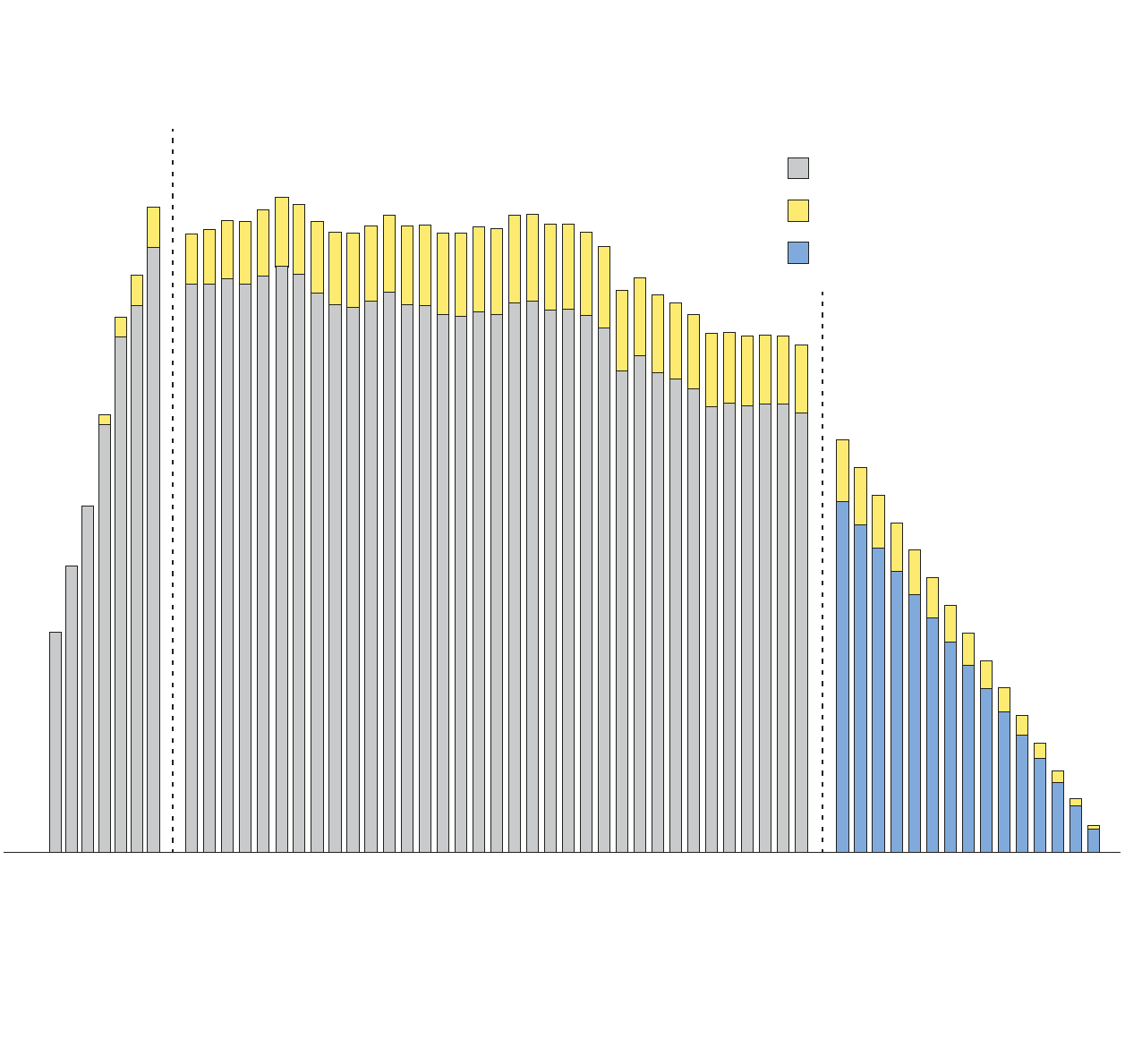
Tangible benefits
Citizens
- Reduced energy consumption
Reduced energy consumption of citizens and businesses especially for heat and mobility - Higher quality of life
Healthy and affordable mobility for all with clean air and space for encounters and greens - Good communal life
Active participation brings businesses and citizens from all backgrounds together
Economy
- Projects for the future
Economic conditions that promote private and public investments in CO2-adverse technologies and measures - Feasible remodeling with competitive advantages
Different starting points in emissions among companies transitioning to climate-neutral operations are taken into consideration
Society
- High reliability in the face of a resource crisis
100% renewable energy supply, based preferably on locally produced energy - Social peace
Regard for social peace - ecological sustainability, safeguarding the future
Implementation of 1.5° climate goals
CO2COMPASS
Gewerbestr. 7 | 79539 Lörrach | kontakt[at]co2compass.org

